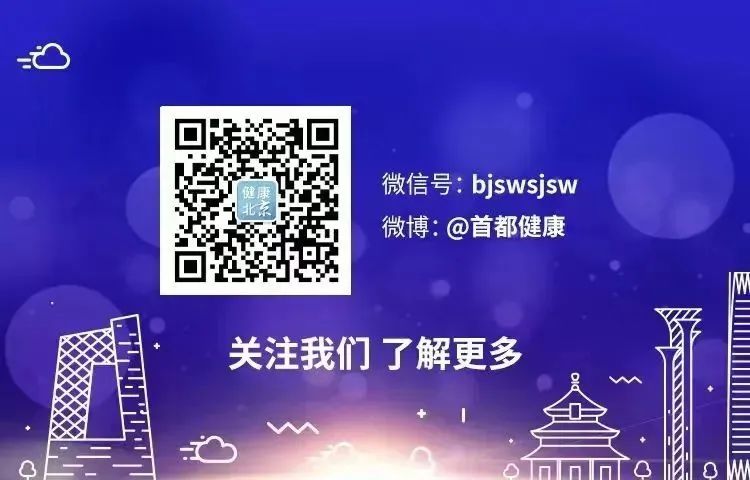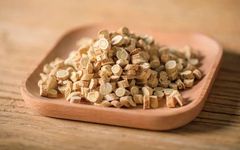
After experiencing a serious illness, do you often feel fatigued, have palpitations, shortness of breath, cold limbs, and excessive sweating? These are all symptoms of Qi deficiency. The appearance of Qi deficiency symptoms indicates that the energy in our body is insufficient, and at this time, supplementation is necessary. Ren Shen (Ginseng) and Huang Qi (Astragalus) are two very important herbs used to tonify Qi, especially Huang Qi, which has a wide range of clinical applications. In the Shen Nong Ben Cao Jing, Huang Qi is classified as a superior herb. Today, let us learn more about this Qi-boosting herb—Huang Qi.
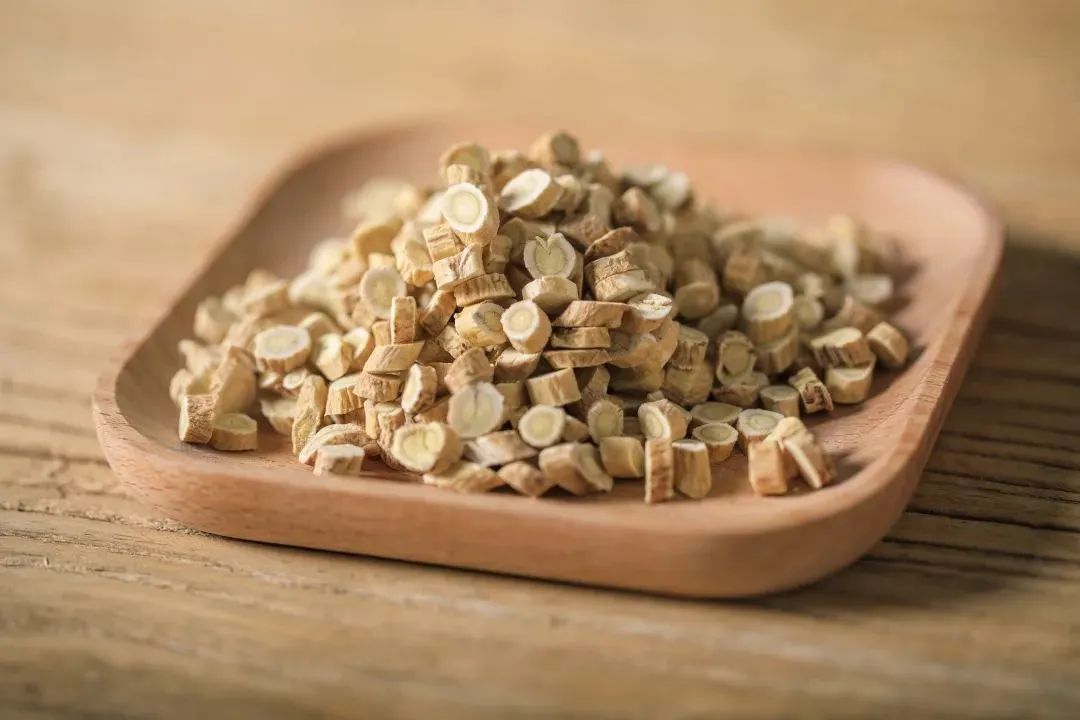
1
What kind of herb is Huang Qi?
Huang Qi has a medicinal history of over 2000 years, and there is a legendary story about its origin. It is said that there was a kind-hearted old doctor named Dai Shan, who was skilled in acupuncture and was humble and kind. He died after falling off a cliff while saving a patient. The old man was thin and had a pale yellow complexion, and people respected him as “Huang Qi”. After his death, a sweet-tasting herb that could tonify Qi, stop sweating, promote urination, reduce swelling, and detoxify grew beside his grave. In memory of him, this herb was named “Huang Qi”. Modern research shows that Huang Qi enhances immune function, protects the liver, promotes diuresis, has anti-aging and anti-stress effects, lowers blood pressure, and has broad antibacterial properties. Due to excessive harvesting, the number of wild Huang Qi has sharply decreased in recent years, posing a risk of extinction, and it has been classified as a vulnerable species and a nationally protected plant.
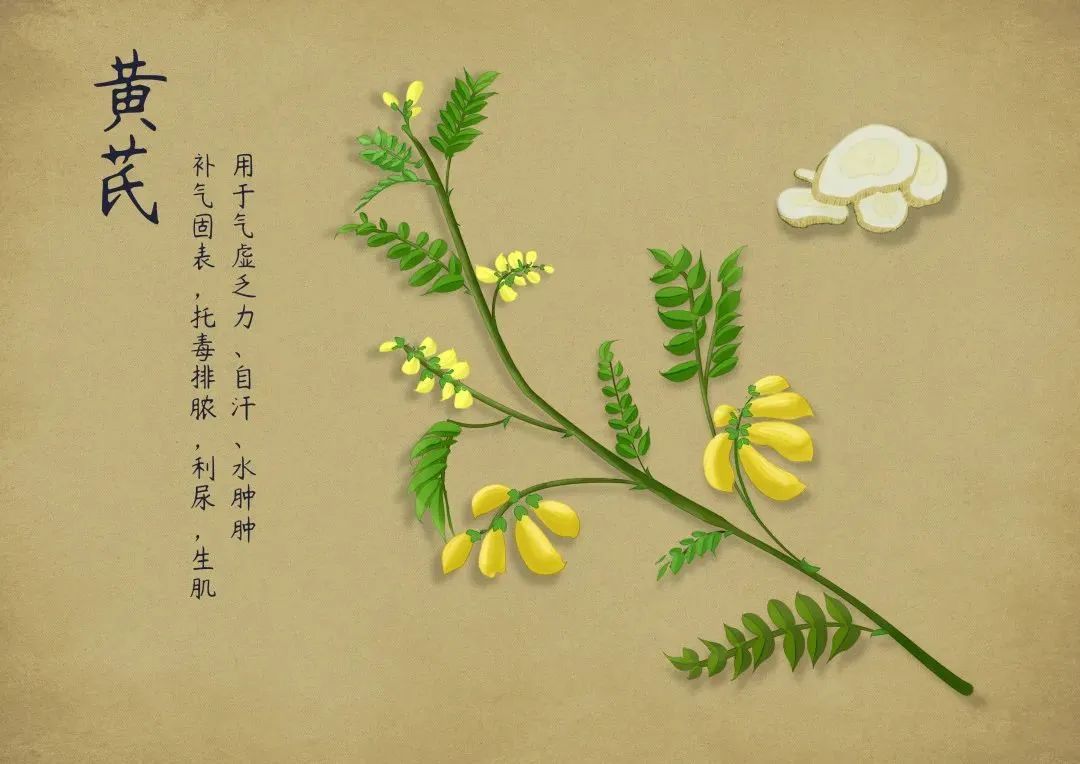
2
What diseases can Huang Qi treat?
The Shen Nong Ben Cao Jing states: (Huang Qi) has a sweet taste and is slightly warm. It is used to treat abscesses, chronic sores, stop pain and discharge, wind rash, hemorrhoids, mouse fistula, and to tonify deficiency in children. The Tang Ye Ben Cao states: It is warm in nature, sweet in taste, and purely Yang. It is slightly warm, neutral, and non-toxic. It enters the Shao Yang and Tai Yin meridians, as well as the Shao Yin and Ming Men channels. The Ri Hua Zi Ben Cao states: It can assist Qi, strengthen muscles and bones, promote flesh growth, tonify blood, break phlegm, treat scrofula and goiter, intestinal wind, blood collapse, and discharge, red and white dysentery, all diseases before and after childbirth, irregular menstruation, thirst, cough with phlegm, and treat head wind heat toxin, and red eyes. The Ming Yi Bie Lu states: It is used to treat women with wind evil in the childbearing organs, expel evil blood from the five organs, tonify men’s deficiencies, alleviate fatigue, stop thirst, relieve abdominal pain and diarrhea, benefit Qi, and promote Yin Qi. The Yao Xing Lun states: It treats back pain. It tonifies internally, treats deficiency cough, kidney failure, deafness, and alleviates cold and heat. The Yao Lei Fa Xiang states: It treats deficiency, spontaneous sweating, tonifies lung Qi, strengthens the skin, and clears lung fire, especially for those with a wiry pulse and spontaneous sweating. It is effective for spleen and stomach deficiency, ulcers, and blood circulation issues, and is essential for treating internal Yin deficiency and ulcers. It can be seen that Huang Qi not only warms and tonifies the Qi of the spleen and kidneys but also has good therapeutic effects on deficiency, ulcers, and some gynecological and andrological diseases caused by deficiency.
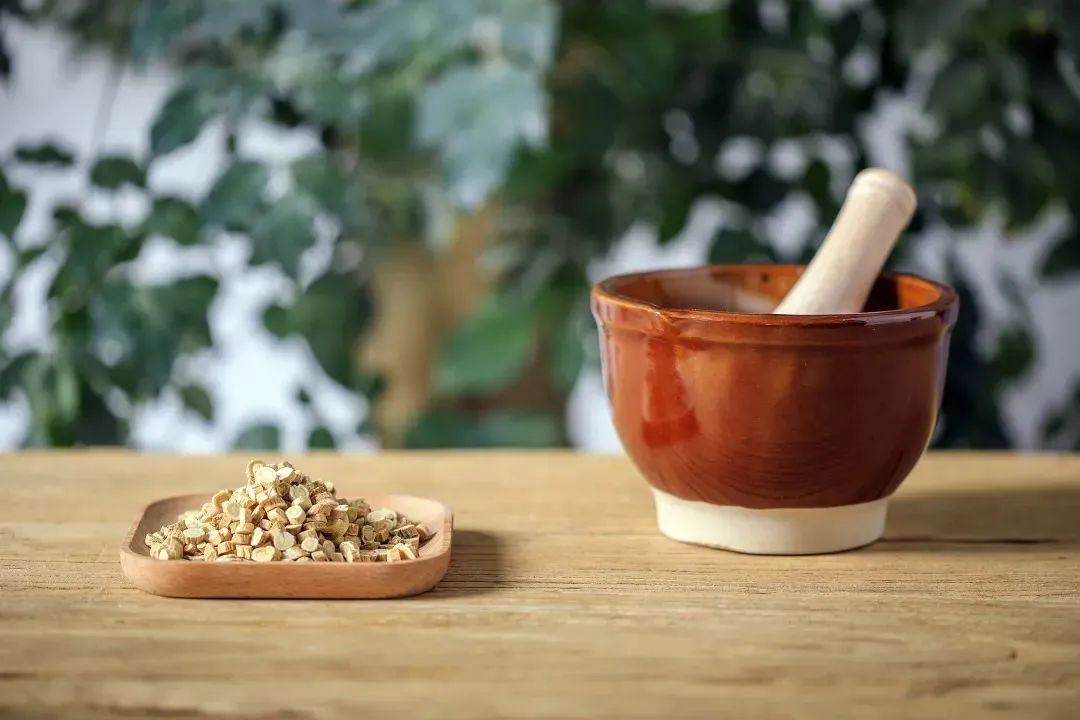
3
What is the difference between raw Huang Qi and roasted Huang Qi?
Firstly, their processing methods are different. Raw Huang Qi, as the name suggests, is unprocessed and used in slices, while roasted Huang Qi is made by slicing raw Huang Qi and stir-frying it with honey. In terms of efficacy, there are also differences: raw Huang Qi focuses on tonifying Wei Qi, expelling pus and stopping pain, solidifying the exterior and stopping sweating, promoting flesh growth, and reducing swelling; while roasted Huang Qi primarily tonifies the middle Qi, specifically the Qi of the spleen and stomach, and is better for lung deficiency, shortness of breath, Qi deficiency with weak blood, and Qi deficiency with constipation. However, it should be noted that excessive consumption of roasted Huang Qi can easily lead to excessive internal heat.
4
What are the differences in the use of Huang Qi and Ren Shen, both Qi-boosting herbs?
Although Huang Qi and Ren Shen are both revered Qi-boosting herbs, there are significant differences in their usage. Chen Jia Mo in the Ben Cao Meng Quan elaborates on the distinctions between the two: both are sweet and warm and can tonify and benefit. They are suitable for deficiency and can work together. However, Ren Shen primarily tonifies Yuan Qi and regulates the middle, while Huang Qi also tonifies Wei Qi and solidifies the exterior. The tonification effects are slightly different, and their combined use should not be equal. The monarch herb should be emphasized, while the minister herb should be reduced. The monarch herb should be used in larger doses, while the minister herb should be used in smaller doses. In the De Pei Ben Cao, a more in-depth explanation of the differences is provided: Huang Qi tonifies Qi, which has both internal and external aspects. The Wei Qi that circulates outside the meridians is the internal Wei Qi, while the Qi that acts on the skin surface is the external Wei Qi. For skin surface Qi, Huang Qi is more suitable; for internal Qi, Ren Shen is more appropriate. In other words, if one suffers from internal injuries, spleen and stomach weakness, fear of food intake, lethargy, fever and chills, vomiting and diarrhea, abdominal distension and fullness, fatigue, and a weak pulse, treatment should focus on tonifying the middle and benefiting Qi, with Ren Shen as the main herb and Huang Qi as the assistant. If it is a case of exterior deficiency, with weak pores, spontaneous sweating, and gradual loss of Yang, along with ulcers and excessive pus and blood loss, infantile rashes, and all diseases caused by Yin toxins, treatment should focus on solidifying the exterior and nourishing the essence, with Huang Qi as the main herb and Ren Shen as the assistant. In summary, Huang Qi primarily tonifies Wei Qi, while Ren Shen primarily tonifies Yuan Qi.
5
How to consume Huang Qi?
Huang Qi can be brewed in water, but it is important to note that Huang Qi should not be steeped in boiling water directly; it needs to be decocted first to fully exert its Qi-boosting effects. Below are a few daily tea recipes that can be made.
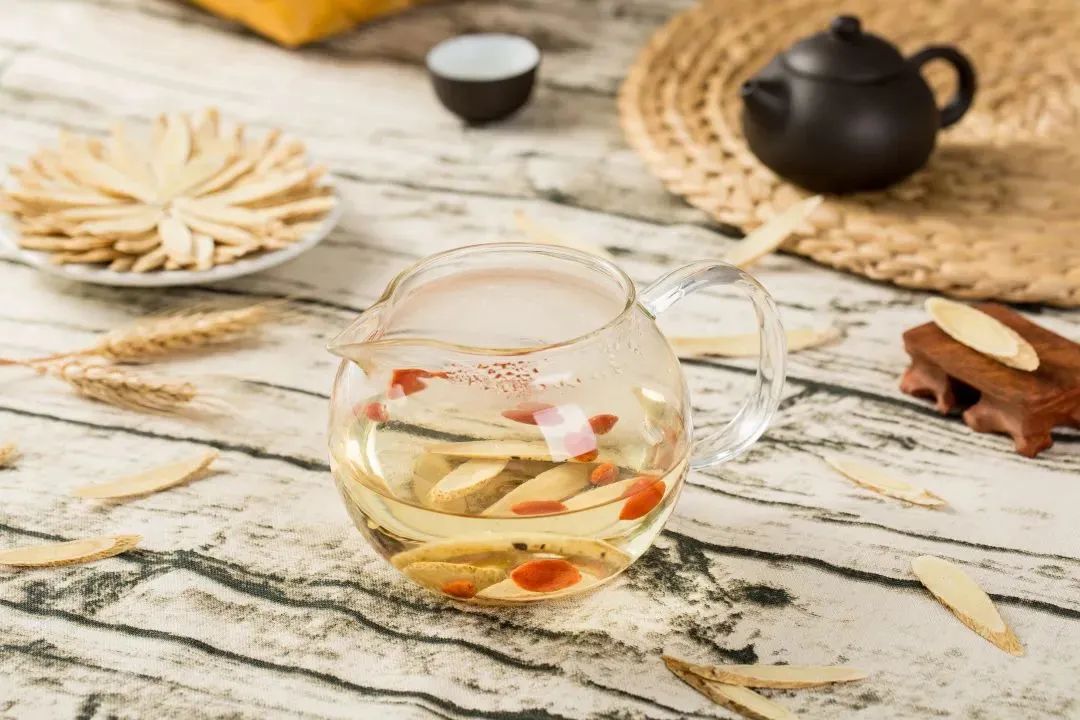
Huang Qi, Goji Berry, and Red Date Tea
Ingredients: 15g Huang Qi, 15g red dates, 15g goji berries.
Method: Add Huang Qi, red dates, and goji berries to an appropriate amount of water, and simmer on low heat for one hour. Each decoction can be divided into 2-3 servings. Take one dose daily, divided into 2-3 servings.
Efficacy: Suitable for all kinds of people, long-term consumption can strengthen the body and beautify the skin.
Huang Qi Lung Tea
Ingredients: 30g Huang Qi, 15g Mai Dong, 6g Wu Wei Zi, 6g Wu Mei.
Method: Decoction of Huang Qi, Mai Dong, Wu Wei Zi, and Wu Mei to extract the juice, sweetened with honey.
Efficacy: Treats Qi deficiency with Yin injury, spontaneous sweating, and persistent cough.
Huang Qi Black Tea
Ingredients: 15-25g Huang Qi, 0.5-1g black tea.
Method: Boil Huang Qi in water for 5 minutes, then add black tea while hot and mix well; take one dose daily, divided into 3 servings.
Efficacy: Solidifies the exterior and stops sweating, tonifies Qi and strengthens the body, promotes diuresis and reduces swelling, expels pus and detoxifies. Suitable for chronic weakness, exterior deficiency with spontaneous sweating, and chronic bronchitis.
Huang Qi and Dang Gui Tea
Ingredients: 30g Huang Qi, 6g Dang Gui.
Method: Decoction of Huang Qi and Dang Gui to extract the juice, sweetened with honey.
Efficacy: Tonifies Qi and nourishes blood, used for blood deficiency with Yang floating heat, red face, thirst, and also treats women’s blood deficiency and heat headache during menstruation or postpartum.
6
What precautions should be taken when consuming Huang Qi?
Individuals with Yin deficiency and excess heat, such as those who often experience heat, tidal fever, excessive sweating, irritability, bitterness in the mouth, dry throat, and dry eyes, should not continue to use Huang Qi to tonify Qi and raise Yang. Although Huang Qi can strengthen the spleen and benefit Qi for those with frequent food stagnation and spleen and stomach weakness, if the stagnation is due to food accumulation, using Huang Qi may exacerbate internal heat symptoms, making it unsuitable for use. Additionally, if you often experience heat, colds, or fevers, it is best to avoid using Huang Qi during such Yang heat symptoms.
After discussing all this, I hope everyone has gained a new understanding of Huang Qi. Knowing oneself and knowing others leads to victory in every battle; only by having a comprehensive understanding of Huang Qi can we maximize its therapeutic effects.
Source: Beijing Friendship Hospital, Capital Medical University
Editor: Yang Shijia
